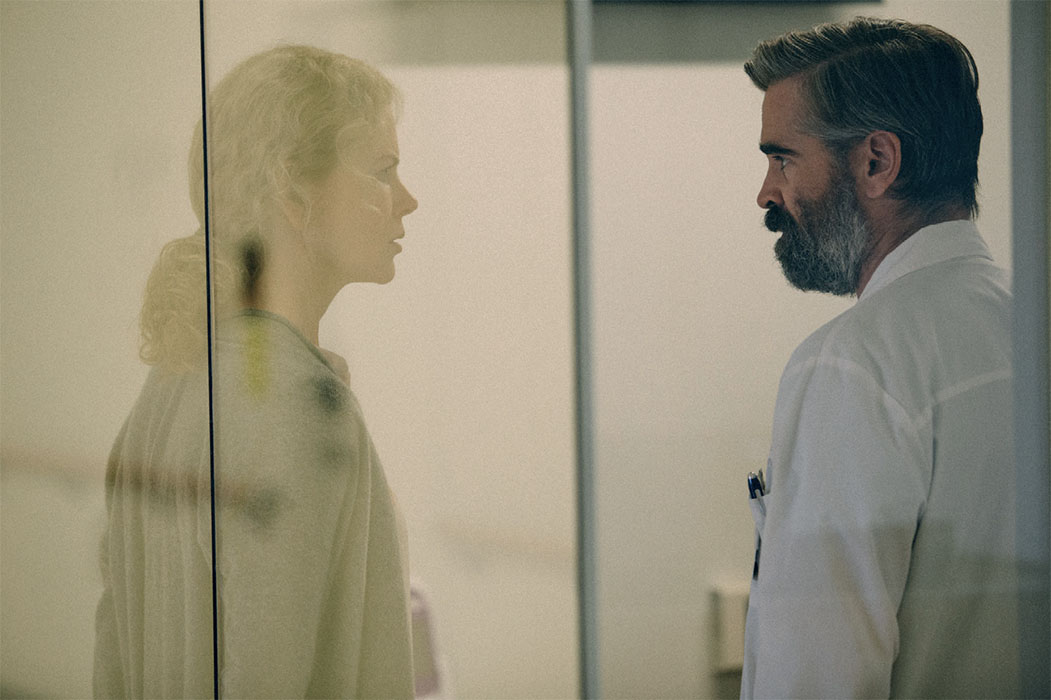In The Killing of a Sacred Deer, Greek filmmaker Yorgos Lanthimos returns with another disturbingly cerebral moviegoing experience, and solidifies his reputation as an auteur more than capable of making his audience squirm in their seats. In the new film, Lanthimos reunites with Colin Farrell, the star of his only other English-language film, The Lobster, a divisive black comedy that rattled audiences in 2015. The Killing sees the addition of Nicole Kidman, who plays Anna, the frigid ophthalmologist wife of Farrell’s heart surgeon, Steven. Barry Keoghan of Dunkirk fame also joins the cast as Martin, the vengeful son of one of Steven’s former patients. While the new work does retain aspects of the The Lobster’s darkly comedic tone, The Killing is decidedly more somber. At its core, it is a story about revenge and justice, but it also proves to be so much more than that.
The stilted, almost deadpan performances delivered by the film’s major players will be familiar to anyone acquainted with Lanthimos’s earlier work, but here the artifice works better than ever before. The understated performances mirror the sterile, modernist spaces the characters inhabit, building up a placid façade that the film then brutally strips away. Keoghan particularly excels in this regard as Martin, a character who slowly reveals himself not to be the naïve youth he seems at first, but rather one of the most chilling movie villains since No Country for Old Men’s Anton Chigurh. Kidman’s Anna also offers an impressive and layered performance, exposing the emotion seething beneath the surface of her character even as she struggles to conceal her own fear.
Where Lanthimos shines as a filmmaker is in turning a dark mirror towards our own lives and revealing the absurdity of many of our rituals and beliefs. His characters transgress social norms in a way that makes us deeply uncomfortable, even if we fail to pinpoint exactly why. Is it the mechanical cadence of a character’s speech? The fact that he divulges the most intimate details of his personal life with casual disinterest? Or, maybe, the Kubrickian way that the camera stalks its subject through the frame? Regardless, there is always something askew in Lanthimos’s work that rouses in us a comprehension of the truly ominous nature of an otherwise unremarkable scenario, and forces us to question the morality of habits and attitudes we’ve always taken for granted.
Lanthimos uses these new perspectives to question the manicured lives of the film’s central family. His story is interested in how our trust in science and justice can fail us, and how in such moments we can be reduced to horrifying acts of violence and manipulation. It is also concerned with responsibility, and those who will do anything to avoid accepting it. The Killing of a Sacred Deer is an utterly terrifying experience, and some of the most rigorously precise and affecting filmmaking I’ve seen in quite some time.








